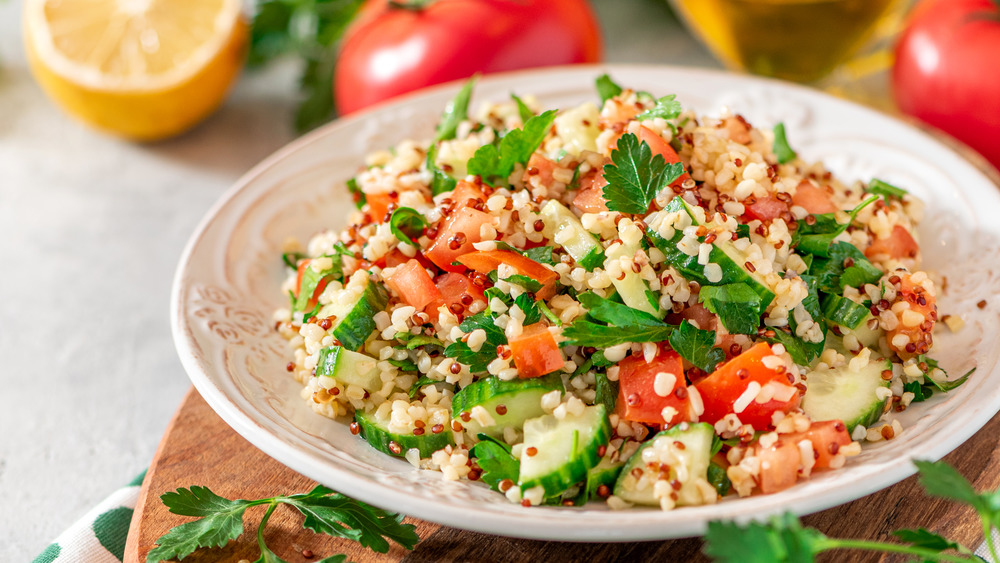The Truth About The MIND Diet
It has been reported that one in 10 Americans over the age of 65 suffer from Alzheimer's disease. In the race to combat the progressive brain disorder, researchers have found that there may be some lifestyle interventions that help slow the progress of age-related brain dysfunction, and in 2015, the MIND diet was introduced (via Today). A study found that following the MIND diet could reduce the risk of Alzheimer's by up to 50 percent, and even when not followed to the letter, it still offers protective benefits (via Alzheimers.net).
The catchy acronym has a lengthy name behind it: MIND is shorthand for the Mediterranean-DASH Diet Intervention for Neurodegenerative Delay. It was developed at the Rush University Medical Center in 2015 and combines elements from the well-known hearth-healthy Mediterranean diet and the lower sodium DASH (Dietary Approaches to Stop Hypertension) diet (via the Cleveland Clinic). The MIND diet approach, researchers argue, can actually keep your brain young.
It's not just healthy for your brain: It's great for keeping blood sugar stable as well. Dr. Susan Fox, a vascular surgeon, told Today that the MIND diet "is high in vitamins and minerals naturally occurring in beans, legumes and vegetables which promote a brain-healthy diet without the peaks and valleys of insulin and sugar disruption."
What do you eat on the MIND diet?
While the combined Mediterranean and DASH diet approach may sound confusing or hard to follow at first glance, it's actually a fairly simple diet to follow, and its creators note that it's meant to be a guideline rather than rigid rules. Like the Mediterranean and DASH diets, the diet centers around fresh produce, lean meats, fish, whole grains, and olive oil (via the Cleveland Clinic). Recommendations also include eating berries as your primary source of fruit, adding plenty of leafy greens to your diet, snacking on nuts and beans, and even sipping a glass of wine on occasion. Perhaps more important than the recommended foods in the diet are the ones that are discouraged.
Foods to skip include red meat, and processed meats, fried fast foods, sweets and pastries, butter, and whole-fat cheese. This is similar to the guidelines of the Mediterranean diet, though that framework doesn't expressly prohibit full-fat dairy. But don't worry if you occasionally sneak a donut or a burger on occasion: Remember, this diet is helpful for your brain even if you do deviate from it sometimes.


